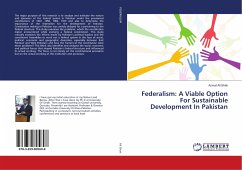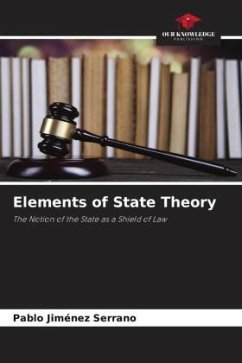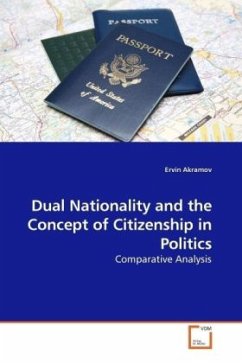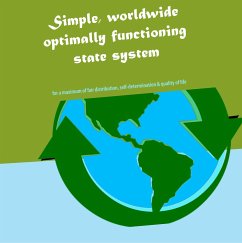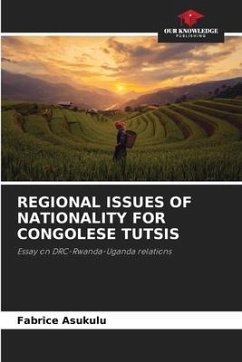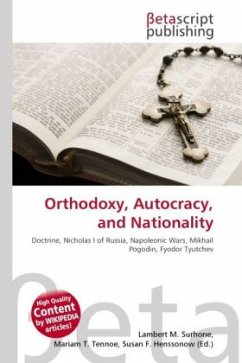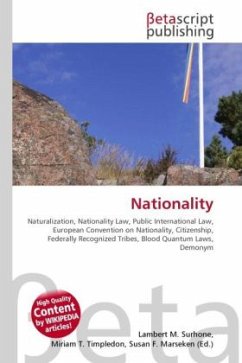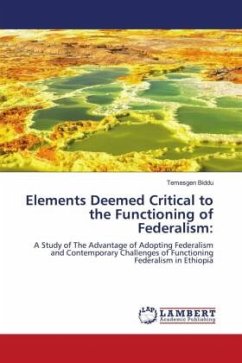
Elements Deemed Critical to the Functioning of Federalism:
A Study of The Advantage of Adopting Federalism and Contemporary Challenges of Functioning Federalism in Ethiopia
Versandkostenfrei!
Versandfertig in 6-10 Tagen
29,99 €
inkl. MwSt.

PAYBACK Punkte
15 °P sammeln!
This study explored the functionality and practices of federalism in Ethiopia. It examined the factors deemed as contributing to its function, how federalism provides a framework for the equal recognition of cultural and religious diversity in Ethiopia, and the contribution of ethnic-based federalism in promoting democracy. The information was gathered from 384 citizens from four regions (Oromia, South Nation, Nationality People, Sidama, and Somalia) and the Addis Ababa city administration. Questionnaires and interviews were used to collect data from 384 citizens during survey questionnaires a...
This study explored the functionality and practices of federalism in Ethiopia. It examined the factors deemed as contributing to its function, how federalism provides a framework for the equal recognition of cultural and religious diversity in Ethiopia, and the contribution of ethnic-based federalism in promoting democracy. The information was gathered from 384 citizens from four regions (Oromia, South Nation, Nationality People, Sidama, and Somalia) and the Addis Ababa city administration. Questionnaires and interviews were used to collect data from 384 citizens during survey questionnaires and 64 key informants from legislators, academics, political parties, and officials of selected research areas, including Ethiopian Civil Service University. Both quantitative and qualitative methods of data collection were employed for the study. The study findings show that Ethiopia's federalism provides a framework for equal recognition of cultural and religious diversity and has contributed to democracy development. However, some regional states still have not fully practiced their autonomy as enshrined in the constitution of 1995.



